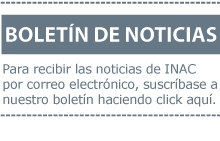Environmental sustainability was addressed by Professor Frank Mitloehner, from the University of California, Davis, in the United States, who is also advisor of the National Meat Institute.
In turn, Walter Oyhantçabal, advisor of the Ministry of Livestock, Agriculture and Fisheries, presented the view from public policies related to mitigation strategies and adjustment to climate change, focusing on the livestock sector.
Details on the public-private articulation of Uruguay were disclosed at the Conference "From farm to table".
Discussion on methane emissions of livestock and their contribution to global warming, and therefore, to climate change and variability, is approached at global level.
FAO's publication "Livestock's long shadow" estimates that livestock accounts for 18% of greenhouse effect gases, even more than transport.
Precisely, one of the authors of FAO's report of 2006 will visit Uruguay next February, as announced by Walter Oyhantçabal, of the MGAP, during his presentation. The expert stated that measurement of the range of values of the carbon footprint will be an environmental added value that will aggregate to others already implemented such as traceability and food safety.
Balance lies in more animals, less land, and more efficiency. This is a great sustainability issue, Mitloehner explained, since the opinion of society is to be taken into account, and society does not care about efficiency but about the fact that animals are well treated and have space enough.






